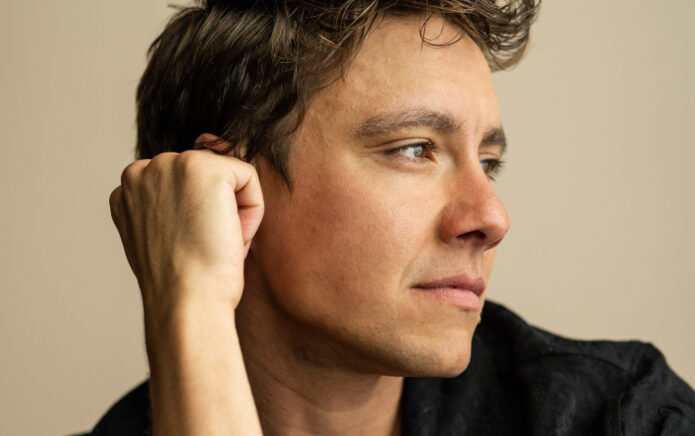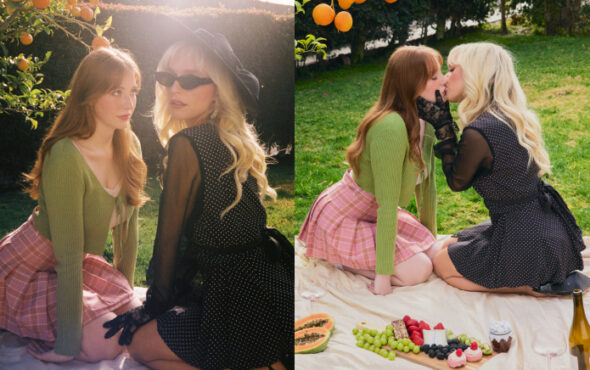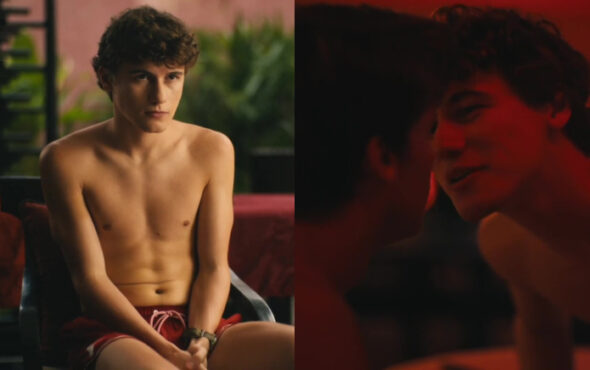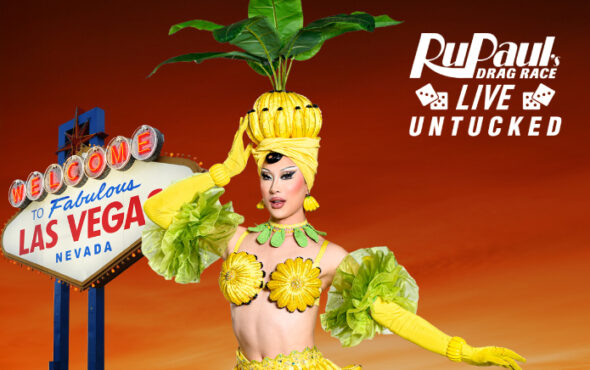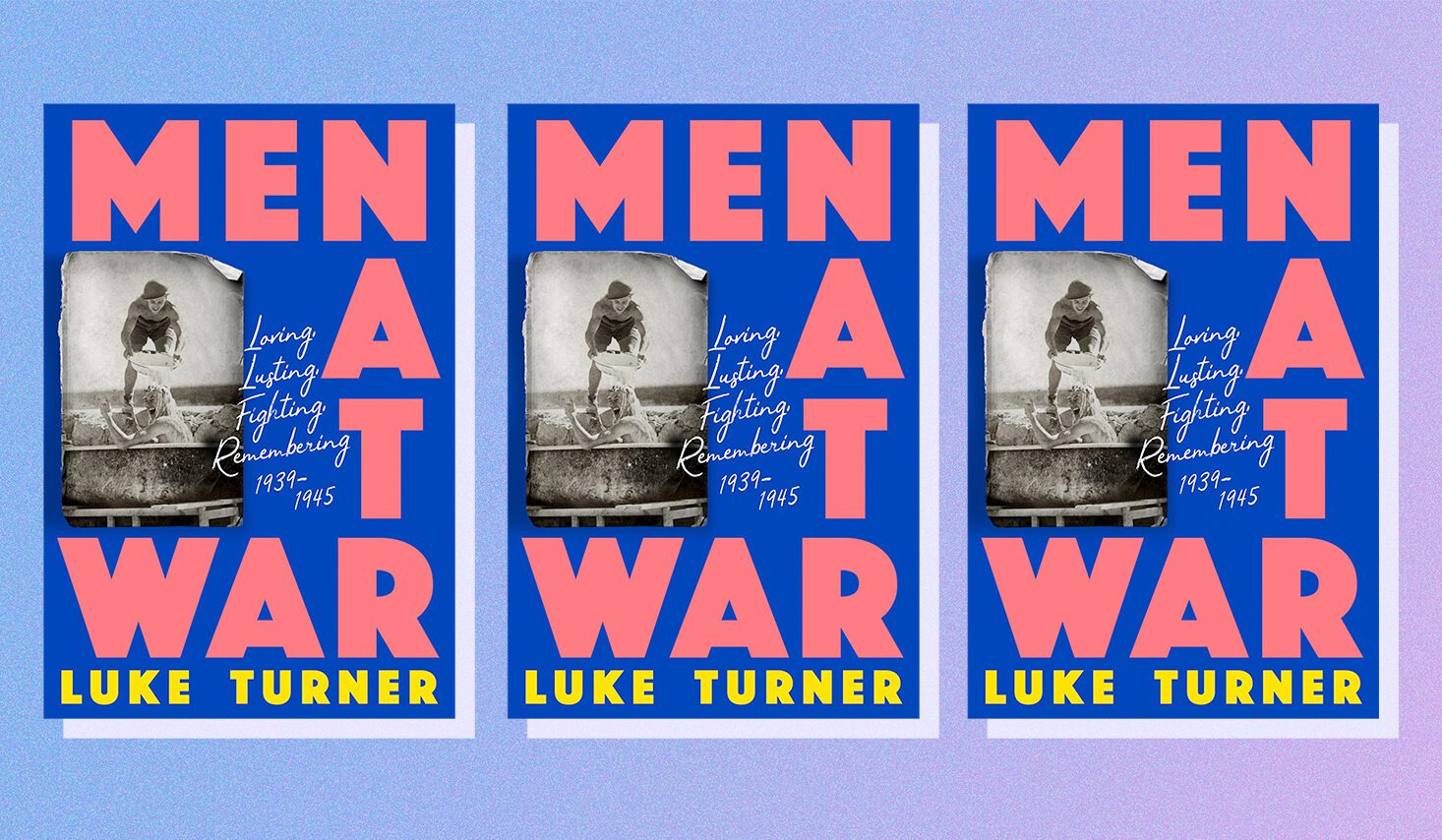
Luke Turner has spent the better part of his career writing about music. His first book, Out of the Woods, is a touching memoir exploring bisexuality and nature that emerged from his writing on Frank Ocean’s famous open letter.
Though neither of his books are ‘music books’, his experience of writing about culture shaped both. Men at War, Turner’s recently released second book, is an exploration of the culture beyond the common jingoistic understanding of the Second World War.
We had a chat with Turner about music, masculinity and his revolutionary queering of the history of the Second World War.
Hey Luke! The book’s been out for a little while now. How are you doing?
Good, life outside writing is just doing admin for my day job. When you’re trying to do any kind of writing, you end up doing about five different jobs.
How do you find time to fit in the writing, with everything else going on?
I’m working a lot in the evenings and weekends at the moment, but it’s always been like that. The really difficult thing was that I signed the book deal just as the COVID lockdown started. People were saying, ‘What an amazing time to do something creative!’ I found it wasn’t an amazing time to do anything at all, let alone anything creative. It was such a blocking, depressing time. Writing always happens in and around everything else. Keeping The Quietus website alive is a full-time job. It’s still my main thing.
What was the moment you decided to write a book?
That came about ten years ago, with the first one. I felt like just writing about music was limiting. I started writing for a website called Caught By The River, which is mostly about nature writing because I wanted to write about something else. I had this idea for a book about Epping Forest in East London and I started working on that, until it gradually evolved into Out of the Woods, my first book.
With the guidance of my editor, that became more of a memoir. She’d read a piece I’d written on Frank Ocean and bisexuality for The Quietus, when he wrote that beautiful open letter. It really moved me because male bisexuality was so taboo at the time and I’d never read anything about it. I’d always felt very alone in that. That fed into what I was writing about Epping Forest, nature, religion, shame, sin and sexuality. It definitely emerged from The Quietus and music writing. Even though neither of my books are music books, they have their roots in writing about culture.
If you had to compare each of your books to an album, which would you choose?
As a teenager, my favourite, life-changing band was Suede. They helped me understand a lot about not fitting in with masculinity, sexuality, being from a satellite town of London, dreaming. Their second album Dog Man Star, was a long, protracted, difficult grandiose project. I’ve always compared Men at War to Dog Man Star. The first book is all about London and sex, and Suede’s first album was very much like that. They’re two of my favourite records from my favourite band.
What drew you in about these themes of masculinity and behaviour associated with the war?
It was a self-interrogation because I’d always been obsessed with the war as a kid. That went away and came back again over the past 10 years. I wanted to explore why I, and Britain, was obsessed with it, how that made me feel uncomfortable and how it was exploited by Brexit, the Tories and the right wing. There were two main ideas: one, that war is a heterosexual, male activity, which didn’t ring true to me.
I wanted to look at queer people in the military in the context of the Second World War and the idea that war disrupts morality, so men could potentially be their true bisexual selves. A lot of people say that, in the Army or Navy, lots of men have sex with each other because there are no women around, which is reductive. I wanted to write about wider masculinity and how queer men have a different perspective on masculinity to heterosexual men.
Did you think people might reject the narrative of queerness in war that you’re putting forward?
I always find it very interesting that the sexuality of Wilfred Owen and Siegfried Sassoon isn’t discussed all that much. Sassoon, especially, is always seen as a pacifist. I wrote an essay on the period when the friend he was in love with died and he kept going into no man’s land trying to kill Germans by himself. He was a really violent man, and I thought that was something about his personality that gets rejected by people who want to see him as a pure pacifist. He knew what killing was because he’d done it brutally.
I thought that people would reject what I was trying to say. I always want to go with the idea that things aren’t binary, there’s a lot of grey area. This particular moment in time is not always popular, from both sides of the political fence. I did think some right-wing people might reject it. On the other hand, I did think there might be people in the LGBT+ world who don’t want queer people to be associated with violence and war. It’d be interesting to see how that pans out as the book gets out there.
Why do you think there’s a reluctance to look at the Second World War with a queer lens?
Some of it is ignorance, probably from people who want to think that sex was invented in the 1960s, with the supposed sexual revolution. People have a very traditional view of the Second World War and use it to bolster conservative ideals of Britain being alone and courageous, with people being subservient to the rules of the state.
Queer sexuality disrupts a lot of that, particularly with its abeyance of rules. People still have old-fashioned ideas that queer sex is subversive and dangerous, and so on, and that it’s just sex without love, ideas you’d see in official documents right up until the 90s. There is a fear of accepting that the past was a lot more complex, but it’s very difficult to get hold of these stories. The very few men who were queer and wrote about the war were having sex with a lot of men, so a lot of these stories have just disappeared now as that generation has died away.
Do you have a specific moment you’re proud of in Men at War?
I’m very pleased that it’s not just a queer book; only a third of the book is about sex. The more right wing the review, and the posher and straighter the bloke writing the review, the more they’ve been obsessed with the sex side of things, which I’ve found is telling. I’m pleased I managed to include the story of Dan Billany and David Dowie, the chapter called ‘Breaking the Cage’.
I finished the book when I discovered it, via an amazing writer called Ken Worpole. He told me about this book, The Cage, that these two men had written together. It was the story of an unrequited, and possibly doomed, infatuation. It was amazing to tell their story, because it’s an incredibly beautiful novel. It’s a tragic story, but it also has a lot of warmth to it. In two evenings, I wrote this chapter and I was really happy that, even after the book was finished, I was able to bring them in.
Do you think that specific chapter will be particularly enlightening?
I hope so. It says a lot about the impossibility of men being in love with other men at the time. There’s so much repression going on in that story, with two men trying to work out how to cope with this really difficult situation but doing it with a lot of understanding. Even if it wasn’t ever an affair that was ever requited, there’s an intense love between the two men, in any case.
Though it’s a tragedy, it’s optimistic. I contrast that with E.M. Barraud, who was in the women’s land army but liked to be called John. She was living with her lesbian partner in a cottage in Cambridgeshire. As she writes it, she had an okay time being treated respectfully by local people, who seemed to accept that she wanted to be called John. I say she, because she identified as a woman at the time, but liked to be called John and presented in a very masculine way.
These stories show us that the past wasn’t just a conservative hellhole of intolerance. There were little places where people could be themselves and try and fall in love with who they wanted to, how they wanted to. I think the war enabled people to do so to an extent too.
How do you think Men at War challenges or queers the perspective around the Second World War?
I think I capture some of the feeling of fluidity that existed. I’m a big believer in fluidity in sexuality and gender. I do sometimes worry that people are too keen to be in a certain box these days. I even find bisexual to be a difficult word, because it’s too limiting and it implies that you’re looking one way and then the other. Desire doesn’t go ‘tick tock’, it’s more slippery and elusive.
I find it interesting that ‘queer’ as a word, back then, was used by other gay men for each other, then became an offensive word and now it’s come back again. It’s interesting how language evolves. These desires are always there, but language is changing all the time. Nowadays, I like queer as a term because it has a slipperiness that bisexual, with its twin points, doesn’t really feel adequate for.
Why do you think the war and post-war perspective is especially relevant to queer culture today?
You can see the way that attitudes to sexuality shifted very dramatically in the Second World War. There was obviously a form of permissiveness and acceptance during the war, through necessity perhaps, but very quickly after the war, it became so repressive. I call it ‘The Great Repression of the Late 40s and 50s’, with prosecutions up, men burning their love letters and some leaving the country.
The book is a bit of a warning – in so many ways, we feel like we’re moving in a positive direction. It’s amazing that the younger generation don’t want any terms at all. That feels exciting and liberating to me! Then there’s always the threat that these rights can be taken away very quickly if we’re not careful. That’s why I wrote the book as well. A lot of my left-wing and queer friends ask ‘Why are you always going on about the war?’ There’s so many lessons for today – it’s easy to slide back into dangerous politics. The war is very useful – we need to be aware of it and embrace that history, on the progressive LGBT side, so we know what history can tell us about our present and be careful with it.
What do you hope audiences, regardless of age and identity, are able to take away from the book?
I hope they see it as a respectful book. I have a huge amount of respect for the Second World War generation. I think they did amazing things, but I’m also convinced that they weren’t better than any other generations. They just did what they had to at that time and did it amazingly. I hope people will see it as a celebration of love, in an odd way. It’s about the amazing things people can do in difficult circumstances while still trying to be themselves in a time that didn’t accept them.
